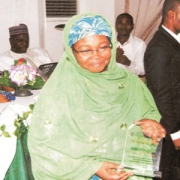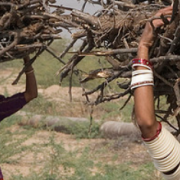Informatics, intellectual property and indigenous communities
One barrier to the use of all-important traditional ecological knowledge in the sustainable use and conservation of biodiversity is differing understanding of intellectual property. Just as people from the western legal tradition often make the mistake of interpreting apparently untenured land as terra nullius and available for appropriation (a justification for land claims by colonial powers), so too, patent laws have been used to lay claim to private rights on what had previously been a public good – a US patent on turmeric as a medicine for example. The differing approaches engender distrust, and impair cooperation on globally important issues.
I’m posting about this issue both as a cautionary tale about indigenous knowledge and informatics, and as one example of how ICT can be used to overcome barriers and promote cooperation.
A recent development aims to provide an interface between “source communities” and institutions that collect and manage data that can smooth the way towards the exchange and use of data. Mukurtu is an open source community archive platform that allows indigenous communities to manage their information and tag it. It began as a project of the Warumungu Aborigional community in central Australia. The platform is now being expanded to meet the needs of indigenous communities everywhere. As the Mukurtu archive explains:
Mukurtu is the Warumungu word for ‘dilly bag.’ Warumungu elders used to keep sacred items in dilly bags to ensure that they were kept safe. The elders were responsible for the safe keeping of the items as well as the knowledge that accompanied those items. Elders taught younger generations and opened the dilly bag when it was proper.
The Mukurtu Wumpurrarni-kari Archive is a ‘safe keeping place.’ The archive uses the cultural protocols of the Warumungu people to arrange, sort, and present content. Any piece of content that is not marked “open” (and thus viewable by the general public) is tagged with a set of restrictions. For example, Warumungu men and women can not view the same ritual materials. So any item restricted to women only would not be viewable by a male member of the community.







































